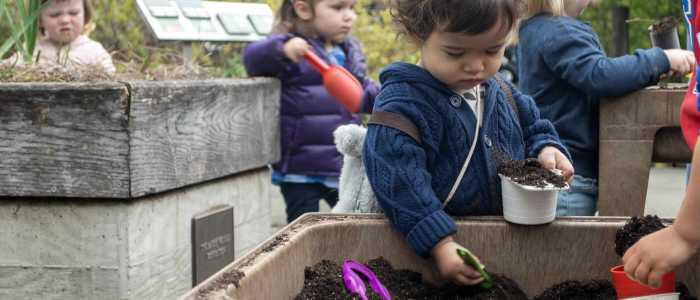By some accounts, more
than half of kids report getting picked on at the beginning of each school year,
says Dr. Mirjam Quinn, an Assistant Professor of Clinical Psychology at Argosy University in Chicago. That statistic, coupled with periodic
news reports on children committing suicide because of bullying, paints an upsetting
picture for parents.
Being bullied may be the
common thread that unites the largest number of kids from different cultures, belief
systems and parts of the country. But Dr. Quinn says that when parents work
with their children to address the issue, it can actually help them grow up to
be more resilient people later in life.
Of course, that isn’t to
say that bullying can’t be destructive. “Research shows that exclusion and
bullying activate pain centers in the brain,” Quinn says. “We shouldn’t
underestimate the effects of bullying, but if a child has a good support system
of adults who are willing to listen and help, the experience of getting bullied
can go from damaging to an opportunity for growth.”
Parents can create such an
opportunity by staying tuned into their children’s lives, especially with
regard to what’s going on at school. Emmy Award-winning actress, anti-bullying
activist and author of Free To Be You And
Me, Marlo Thomas says that when kids become bullying victims, their
behavior will usually change. They often wake up complaining of stomachaches or
other physical ailments, and try to avoid going to school or riding the bus.
They may stop spending time with friends. Kids may also start acting moodier,
change their eating or sleeping habits, or lose interest in activities they
once enjoyed. If parents notice these warning signs, they should talk to their
child and try to get him to open up about what’s going on.
“Children are often
ashamed when they’re bullied because they’re afraid they’ll look weak,” Thomas
says. “Parents should turn the table and explain that the bully is the one who
should be ashamed.”
Quinn says adults have to
be an active part of the solution to bullying, and they should talk to school
administrators and work together to change the culture of intimidation.
“You can’t leave a child
alone in a world where he feels completely helpless,” she says.
Quinn notes that bullying
is most prevalent during the middle school years, when teens begin to identify
strongly with their peer groups and fight for social acceptance. At that age,
kids commonly think that the clearest way to get themselves to the top of the
social hierarchy is to push down other people. Boys tend to bully with physical
pushing and jostling while girls tend to use relational aggression, gossiping
about and excluding certain classmates. Kids who take it to the extreme and systematically
or continuously torture those whom they see as weaker usually have mental
health issues, unstable home lives or grapple with other problems that spark
their cruel behavior.
But whoever the bully may
be, Quinn says parents should encourage their children to stand up for
themselves. Kids who can laugh off bullying or remain unruffled by it don’t
make entertaining victims for their abusers. Bullies want their victims to
react and get upset, and they will usually move on if their targets are
unfazed. Bullies are also much less likely to target kids who have allies, so
Quinn suggests encouraging kids to travel in pairs and seek out one good friend
they can count on for support.
Parents or caregivers who
suspect their kids are being bullied can help them practice responding to
taunts. Without further ostracizing the child, parents should consider which
attributes their son or daughter might be getting teased about and think of
quick, snappy comebacks that can be used to deflect bullies. If parents start
off the conversation with things they personally feel vulnerable about, it
relaxes the child and helps him think more clearly. When kids practice
responding at home, they feel less pressure to think on their feet and can feel
confident in their ability to stand up for themselves when needed. Quinn says
that parents should also teach their kids to stand tall, speak loudly and
clearly and look a bully straight in the eye.
“What you say is as important
as how you say it,” she insists.
But when bullying isn’t
happening face-to-face, things get even more complicated. Cyberbullying poses a
unique threat because it can be anonymous and relentless. Kids who use
Facebook, Twitter, email or other electronic means to bully their peers don’t
have to deal with the guilt of hurting someone’s feelings in person. They can
post a mean comment and never realize that the victim spent the rest of the
night crying.
Quinn says the solution remains
the involvement of parents. They should monitor their kids’ online activity and
talk to them about the consequences of social networking and posting content
online, whether it’s potentially malicious material or not.
“Once something’s on the
Internet, it’s there forever,” she warns. “Kids have to know that they’re
always responsible for anything they put out there.”
Despite the prevalence of
bullying, Quinn says that children who learn the value of treating others
respectfully and standing up for what’s right can transcend the teasing and pass
those positive values on to future generations.
Kids can also take comfort
knowing that whatever harassment they are enduring, they are not alone. One local
young rock group, Radio Silence NYC, sends just that message with its song
“Renegade.” With lyrics like “hatred is the enemy,” band members Zach Allen,
Wyatt Offit, Dylan Brenner and Tim Holmes help to spread a far-reaching message
that bullying is intolerable.
Audiences have been
responsive to their music and message, and many fans have thanked them for
taking a stand. After the group’s drummer, Offit, shared a personal story at a
recent concert about his own struggles with being bullied, tons of kids came
forward and told him they too had similar experiences. The band is partnering
with dosomething.org for a school tour this fall, getting involved in
assemblies and outreach.
“We do this to inspire
people, to tell the bullies that what they’re doing isn’t cool and the victims
that they aren’t alone and there are things they can do to stop bullying,”
Offit says. “We do this to look at a fan and realize they genuinely
appreciate our message. We want to help make their lives better.”
Where To
Find Help
projectbully.com: This by students-for students non-profit
org and social network aims to raise awareness of bullying around the globe. Students
can share their stories and ask for advice.
radiosilencenyc.com: This New York City-based rock band aims
to affect change through their music. Their first single, “Renegade” helps
spread awareness of the growing problem.
respectu.com: Run by anti-bullying expert Dr. Joel
Haber, this site offers concrete advice for parents with children dealing with
bullying, including a quick five-step plan.
safeyouth.org:
Led by the Centers for Disease Control, STRYVE (Striving to
Reduce Youth Violence Everywhere) takes a public health approach to stopping
youth violence before it starts.
stompoutbullying.org:
This organization started Annual Blue Shirt Day, held on the
first Monday of October, where kids and adults are encouraged to don blue
shirts to bring awareness to bullying and cyberbullying.
stopbullying.gov: This organization provides info from
various government agencies on how kids, teens, parents and educators can help
prevent and stop bullying.
stopbullyingnow.com: This site provides training materials for
children, parents and teachers, as well as helpful hints on how to identify a
bully and techniques that work (and don’t work) when confronting one.
westophate.org: Founded by seventeen-year-old activist,
Emily-Anne Rigal, westophate is a call to action to stop hate and raise “teen
esteem.” Encourages individuality through social media.



















